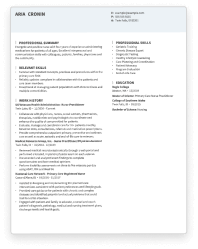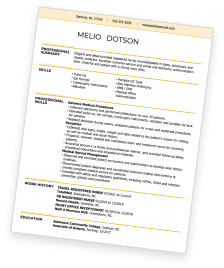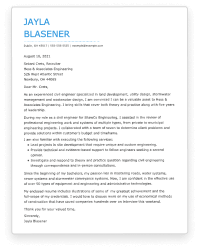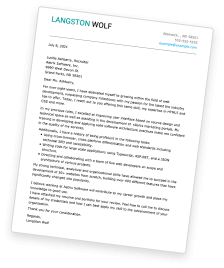Clinical Pharmacist Resumes: Overview
As a dedicated clinical pharmacist, your role involves critical responsibilities. From medication management to patient care, your impact is profound.
You provide patient care that optimizes medication therapy while promoting health, wellness, and disease prevention. Clinical pharmacists can work in various settings, including:
- Hospitals
- Clinics
- Long-term care facilities
- Government agencies
- Academic institutions
Successful clinical pharmacists demonstrate key skills such as pharmaceutical expertise, patient communication, and collaboration with healthcare professionals.
If you are looking for your next clinical pharmacist role, you need to build a resume that showcases your skills and expertise.
So, with the help of our professional resume examples, you can choose one of our high-quality resume templates to apply for your next clinical pharmacist job!
Clinical Pharmacist Resume: Choose a Format
Crafting an impressive clinical pharmacist resume starts with choosing the right format. There are three formats to consider: chronological, functional, or combination. Each has unique advantages, but they can also have some limitations.
Chronological Resumes for Clinical Pharmacists
A chronological resume format highlights your career progression by showcasing your work experience in chronological order.
This format emphasizes your growth and expertise, making it ideal for an experienced clinical pharmacist.
In a chronological format, a clinical pharmacist would list their previous work history, beginning with their most recent position and working backward. Then, beneath each job entry, they would describe their responsibilities and accomplishments in each role in concise, bulleted sentences.
A chronological resume is the most popular format for a resume because employers place a high value on a detailed work history. It is also highly compatible with applicant tracking systems (ATS), which increases the chances of your resume being seen by hiring managers.
Functional Resumes for Clinical Pharmacists
A functional resume takes a different approach by emphasizing your skills and accomplishments instead of focusing on work experience.
It is ideal for recent graduates and those looking to switch roles or who have a significant gap in their work history.
In this format, an aspiring pharmacist can list a summary of qualifications and then detail their most relevant professional skills in great detail.
A functional resume for a clinical pharmacist can demonstrate transferable skills from unrelated jobs, detail knowledge from relevant coursework, and showcase your abilities.
However, it is important to note that functional resumes are incompatible with ATS, and employers may wonder why you didn’t provide a detailed work history. While it may be a good choice to communicate your skillset effectively, it does have its limitations.
Combination Resumes for Clinical Pharmacists
The third option is a combination resume format. This format takes elements from both chronological and functional resumes to strike a balance between experience and skills.
The combination resume format is ideal for clinical pharmacists with at least some related experience and a strong pharmaceutical skillset.
Combination resumes place your skills and qualifications above a detailed work history, allowing you to emphasize your expertise even if you have limited experience.
Choosing a Resume Format
Choosing the best resume format to showcase your unique skills and experience is an important step in crafting a resume for a clinical pharmacist.
When in doubt, experts recommend a chronological format for a clinical pharmaceutical resume.
This traditional format will be familiar to employers, and it is ATS-friendly. If you lack relevant work experience, a chronological resume can be tailored to showcase your transferable skills and qualifications.
For example, if you worked in retail sales while completing your education, you can showcase transferable skills like customer service, handling payments, and keeping a tidy workspace in a clinical pharmacy environment.
How to Write a Clinical Pharmacist Resume
Once you have chosen your resume format, you can start writing your clinical pharmacist resume content. Knowing how to write an effective resume is important if you want to land your job, so make sure to include everything you need carefully.
Start with the five essential sections to outline your resume for a clinical pharmacist:
- Contact Information
- Professional Summary or Resume Objective
- Work History
- Skills
- Education
Once you have carefully crafted those sections, there are some additional sections to consider.
However, making the most of these five elements is important, so let’s dive in!
Contact Information
It should be no surprise that you should include your contact information on your clinical pharmacist resume.
Place your contact information at the top of your resume and ensure it is easy to read and find.
Your contact information section should include your full name, city and state, email address, and phone number.
You can also include a LinkedIn profile if you like, as long as your picture and other details are current and professional.
There is no need to include a full mailing address, as employers will contact you by email or phone.
The format of your contact information section may vary depending on your resume template and design choices. But it may look like this:
Melanie Smith
Salt Lake City, UT
MelanieS@examplemail.com
555-555-5555
LinkedIn.com/in/MelanieSmith
Summary or Objective
Next, you will craft a compelling resume summary or objective statement to introduce yourself to potential employers.
In two to three sentences, a resume summary briefly summarizes your most relevant skills and work experience. It is the best choice for an experienced clinical pharmacist because it will showcase your qualifications and entice potential employers to keep reading.
An effective professional summary conveys your qualifications for the clinical pharmacist position by highlighting your most relevant experience level, knowledge, and skills.
However, it should also convey personal traits that make you a unique candidate.
For example:
“Dedicated clinical pharmacist with 8+ years of experience collaborating with patients and healthcare teams to prepare prescriptions, monitor medication regimens, answer questions and provide accurate information. Passionate about providing high-quality patient care to optimize outcomes and improve quality of life.”
However, an objective statement may be a better choice for someone just starting their career as a clinical pharmacist.
An objective statement focuses on your genuine desire to do the work and relevant qualifications rather than your job experience, allowing employers to see you are a great fit because you are passionate and motivated to succeed.
For example:
“Dedicated aspiring pharmacist looking for advanced pharmacy practice experience in a reputable clinical pharmacy. Skilled in records management, clerical support and customer and patient relations. Eager to collaborate with healthcare teams to optimize patient outcomes.”
Whether you choose an objective or a summary for your clinical pharmacist resume, customize it to each job you apply for.
Using industry keywords and language from the job description can help your resume pass initial screenings by ATS and recruiters.
Work History
When constructing the work history section of your clinical pharmacist resume, go beyond simple job descriptions. Each entry should offer a compelling and detailed account of your responsibilities and achievements.
Start by listing your previous jobs in reverse chronological order, starting with your most recent position. Each job entry should include:
- Your job title
- Employer’s name and location
- Dates you were employed
Then, under each job entry, use bulleted sentences to describe your most relevant job responsibilities and achievements.
To demonstrate your experience, provide a comprehensive overview of your daily tasks.
Detail your involvement in medication therapy management, including aspects like dosage optimization and patient counseling.
Use strong action verbs like managed, educated or monitored to engage the reader.
For example:
“Directed medication therapy for diverse patient populations, ensuring precise adherence and minimizing potential adverse effects.”
To demonstrate your impact in previous roles, quantify your achievements to highlight the tangible outcomes of your contributions. Did you improve medication adherence rates? Streamline dispensing processes? Offer specific metrics or percentages where possible.
For instance:
“Implemented a patient education program resulting in a 15% increase in medication adherence within six months.”
By presenting your work history with this level of detail, you paint a vivid picture of your expertise, showcasing the value you provide to patients and potential employers, and making yourself more unique as a candidate.
For example, your clinical pharmacist work history section may look something like this:
Clinical Pharmacist
XYZ Medical Center, Springfield, IL
March 2019 – Present
- Spearheaded the development and implementation of a comprehensive medication therapy management program, leading to a 20% improvement in clinical outcomes for chronic disease patients.
- Managed and optimized medication dosages for over 500 patients, significantly reducing the risk of adverse effects and enhancing therapeutic efficacy.
- Educated patients and healthcare staff on proper medication use, safety, and potential side effects, resulting in a 25% decrease in medication-related complications.
- Implemented a digital tracking system for medication dispensing processes, streamlining operations and reducing wait times by 30%.
Skills
Next, you will create a dedicated skills section. Use this section to emphasize your most relevant hard and soft skills for a clinical pharmacist.
Technical skills like pharmaceutical knowledge and computer skills are crucial to clinical pharmacy jobs.
However, you also need soft skills like communication, teamwork, and attention to detail to succeed in a clinical pharmacy.
So, always include a mix of both in your resume to present a complete picture of your abilities.
To inspire you, we have compiled the top five hard skills and soft skills for a clinical pharmacist, however, always make sure to tailor your resume to the specific job in question so that your qualifications are clearly relevant.
Top 5 Hard Skills for Clinical Pharmacists Resumes
- Medication Therapy Management: Guaranteeing safe and effective drug use is fundamental for clinical pharmacists. This skill showcases your ability to optimize patient outcomes by ensuring proper medication administration, dosage, and overall therapy management.
- Drug Interaction Assessment: Identifying and mitigating potential drug interactions is essential to prevent adverse effects. This skill highlights your commitment to patient safety, ensuring that prescribed medications work synergistically without compromising well-being.
- Pharmaceutical Knowledge: Staying updated on the latest drugs and treatments is critical in an ever-evolving pharmaceutical landscape. This skill demonstrates your dedication to remaining at the forefront of medical advancements, ensuring you provide the best possible care to your patients.
- Patient Counseling: Effective communication with patients is key to fostering understanding and adherence to prescribed medications. This skill showcases your ability to convey complex medical information clearly and empathetically, ultimately enhancing patient compliance and well-being.
- Regulatory Compliance: Adhering to industry standards and guidelines is non-negotiable for clinical pharmacists. This skill underscores your commitment to ethical practices, ensuring that your work aligns with established regulations and maintaining the highest level of integrity in your profession.
Top 5 Soft Skills for Clinical Pharmacists Resumes
- Communication: Strong communication skills enable clinical pharmacists to convey complex medical information, fostering collaboration and understanding in the healthcare ecosystem.
- Team Collaboration: Clinical pharmacists often work within multidisciplinary teams. The ability to collaborate seamlessly ensures cohesive patient care. This skill showcases your capacity to contribute positively to a team, enhancing overall healthcare outcomes.
- Attention to Detail: Ensuring accuracy in medication dispensing is critical to a clinical pharmacist’s role. This skill highlights your commitment to precision, minimizing the risk of errors, and ultimately safeguarding patient well-being.
- Empathy: Understanding and addressing patients’ concerns with empathy is integral to patient-centered care. This skill emphasizes your capacity to connect on a human level, creating a supportive and trusting relationship with patients.
- Time Management: The fast-paced clinical pharmacy environment demands effective time management. Prioritizing tasks ensures that critical responsibilities, such as medication dispensing and patient consultations, are executed efficiently, contributing to optimal patient care.
You can format your clinical pharmacist resume skills section in a variety of ways. For example, you can provide detailed information like this:
- Experienced with medication regimen review software: RxPertise, PharmASSIST
- Detail and goal-oriented team player with a focus on creating a positive work environment
- Excels at assisting with compliance audits and ensuring adherence to safety protocols
Or, simply list brief bullet points like this:
- Patient Consultation
- Clinic Administration
- Quality Assurance
- Detail-Oriented
- Empathetic
- Collaborative
Education
Now, you will provide your educational background to demonstrate your qualifications.
A clinical pharmacist must have a Doctor of Pharmacy degree and appropriate licensures. Listing these qualifications will let potential employers know you meet the minimum requirements to work as a pharmacist.
Begin with your highest degree earned and, working backward, listing any other degrees relevant to a pharmaceutical position. List your degree and the name and location of the issuing institution.
You may choose to include your graduation dates, but it is optional. In fact, including the dates may introduce an age bias in the hiring process, so leaving that information off your resume can be beneficial.
An example of the education section of your clinical pharmacist resume may look like this:
Education
Doctor of Pharmacy (Pharm.D.)
University of Health Sciences, Chicago, ILBachelor of Science in Biology
State University, Bloomington, IL
You can include your licensure information in this section or create a separate section titled “Licenses” to make that information easier for employers to find quickly.
Additional Sections
Once you have finalized the first five essential sections of your clinical pharmacist resume, consider adding optional sections like:
- Licenses
- Certifications
- Professional Associations
- Awards and Honors
- Volunteer Experience
Only include additional sections if there is space on your resume, and if it enhances your qualification for the position.
Sometimes, you can include the same information in other sections, but if you want to draw attention to something, placing it under its own heading can be helpful.
Top Certifications For Clinical Pharmacists
Obtaining professional certifications can enhance your resume as a clinical pharmacist. For example, getting board-certified in pharmacy specialties can demonstrate your commitment to professional growth.
Here are some top board certifications for a clinical pharmacist resume:
- Board Certified Pediatric Pharmacy Specialist (BCPPS): This certification demonstrates your ability to help pediatricians determine the right medicines for their patients.
- Board Certified Ambulatory Care Pharmacist (BCACP): This credential is essential for working with ambulatory patients and validates your ability to consult with patients with chronic illnesses to self-manage their medications.
- Board Certified Psychiatric Pharmacist (BCPP): This certification demonstrates your skills in providing pharmaceutical care to patients with psychiatric conditions to ensure positive outcomes and patient recovery.
7 Tips For Writing A Clinical Pharmacist Resume
Tailor your resume for each application: Align your resume with the specific job description, emphasizing skills crucial to clinical pharmacy, such as medication therapy management and drug interaction assessment. Customize your work experience to showcase how your skills directly contribute to optimal patient care.
Quantify your achievements: Provide concrete examples of your successful medication management, quantifying improvements in patient outcomes, adherence rates, or the efficiency of medication dispensing processes. Numbers add depth to your achievements and showcase tangible contributions.
Highlight any additional certifications or training: Clearly list relevant certifications such as Board Certification in Pharmacotherapy (BCPS) or Certified Diabetes Educator (CDE). Detail any specialized training, underscoring your commitment to staying current with advancements in clinical pharmacy practice.
Use action verbs to convey impact: Include dynamic verbs such as optimized, implemented, or enhanced to describe your contributions. Showcase how your actions positively impacted patient care, medication dispensing processes, or collaborative efforts within a healthcare team.
Keep your resume concise: Your resume should be no more than 1-2 pages long. Streamline your content to highlight key accomplishments, skills, and experiences directly relevant to clinical pharmacy. Maintain focus on information that is most relevant to your potential employer.
Incorporate keywords from the job description: Identify key terms in the job description, such as ‘medication optimization’ or ‘patient counseling,’ and strategically integrate them into your resume. This enhances ATS compatibility, increasing the likelihood of your resume being noticed by hiring professionals.
Proofread meticulously: Thoroughly review your resume for any errors. A flawless resume reinforces your attention to detail, a crucial attribute in clinical pharmacy where accuracy is crucial.
Helping Job Seekers Like You


Use Our Resume Builder
Key Takeaways
- Crafting an effective clinical pharmacist resume requires showcasing your expertise in medication management and patient care.
- Choose the right resume format based on your experience and skill set.
- Highlight essential skills, both hard and soft, to stand out in a competitive field.
- Board Certifications can significantly enhance your clinical pharmacist resume.
- Tailoring your resume to each application improves your chances of success.
Use Our Cover Letter Builder













